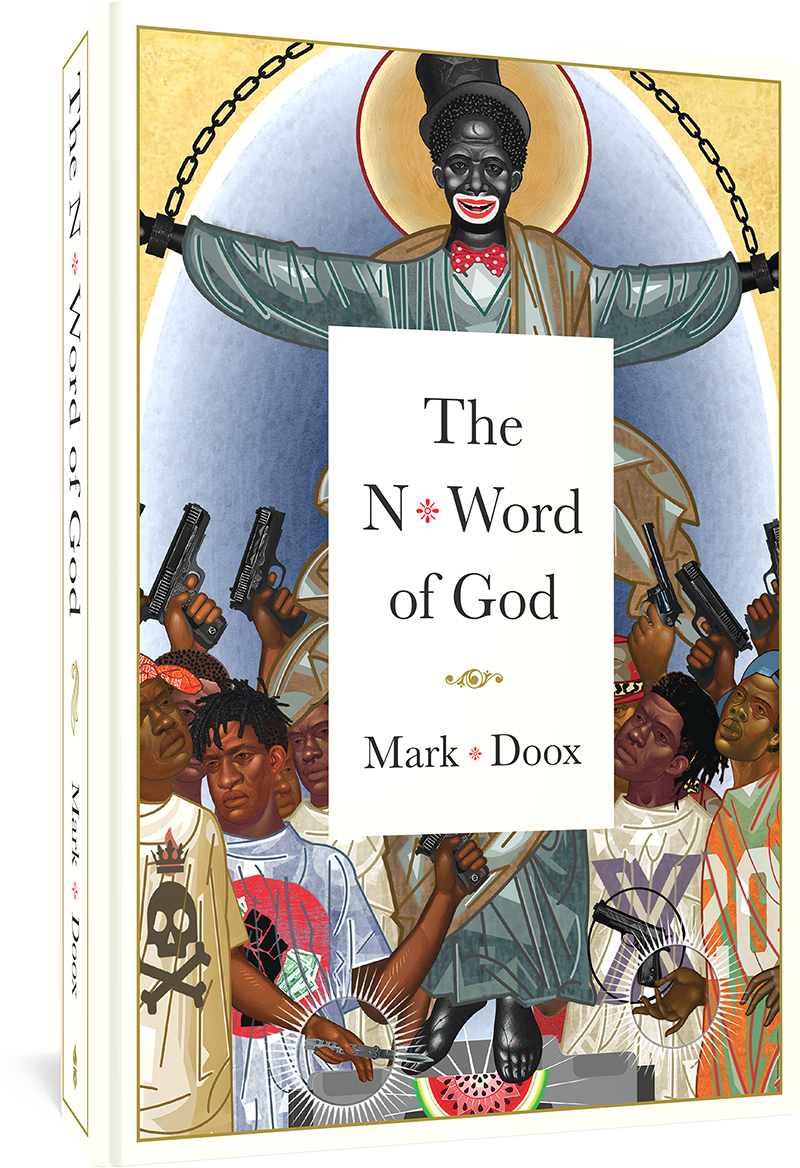Can a Mexican say the N-word? This question has sparked debates and discussions around cultural sensitivity, racial identity, and language appropriation. As society becomes increasingly globalized, understanding the nuances of language and its historical context is crucial. This article delves into the complexities surrounding this issue, exploring historical, cultural, and social factors that influence the use of racial slurs.
The N-word carries a heavy historical weight, rooted in centuries of systemic racism and oppression. Its use is highly sensitive and controversial, regardless of who utters it. For Mexicans or people of Latinx descent, the question of whether they can use this word involves examining their relationship with African American culture, history, and identity.
This article aims to provide a thorough analysis of the topic, offering insights into the cultural dynamics and ethical considerations surrounding the use of racial slurs. By the end, readers will have a deeper understanding of the complexities involved and the importance of respecting cultural boundaries.
Read also:Videos People Are Eager To Watch The Viral Mom And Son Cctv Video And We Unveil The Truth
Table of Contents
- The History of the N-Word
- Cultural Appropriation and the N-Word
- The Mexican Perspective on the N-Word
- Intersectionality: Mexican and African American Relations
- The Power of Language and Identity
- Social Media's Role in Shaping Conversations
- Ethical Considerations in Using the N-Word
- Community Responses and Opinions
- Conclusion
- References
The History of the N-Word
The N-word is a racial slur with deep roots in the history of slavery, segregation, and systemic racism in the United States. Originating as a derogatory term for Black people, it has been used to dehumanize and oppress African Americans for centuries. Understanding its origins is essential to grasping why it remains such a sensitive and contentious issue today.
During the era of slavery, the N-word was used to strip Black individuals of their dignity and humanity. It became a tool of oppression, reinforcing racist ideologies and justifying the exploitation of Black bodies. Even after slavery was abolished, the word continued to be used in Jim Crow laws and segregationist practices, perpetuating racial inequality.
Modern Usage and Reclamation
In recent decades, some members of the African American community have attempted to reclaim the N-word as a way to subvert its harmful connotations. This reclamation is often seen in hip-hop culture, where artists use the word to assert their identity and challenge systemic racism. However, this reclamation is not universally accepted, and many still view the word as a painful reminder of historical oppression.
Cultural Appropriation and the N-Word
Cultural appropriation refers to the act of adopting elements from another culture without proper understanding or respect for its significance. When it comes to the N-word, cultural appropriation is a significant concern. Non-Black individuals, including Mexicans, may feel entitled to use the word because of its prevalence in popular culture, but this ignores the historical and emotional weight it carries for African Americans.
Using the N-word without being part of the community that has experienced its harm can be seen as disrespectful and insensitive. It undermines the struggles and experiences of Black individuals who have fought against the word's oppressive legacy.
Why Cultural Sensitivity Matters
- Cultural sensitivity promotes mutual respect and understanding between different communities.
- It acknowledges the unique challenges and histories of marginalized groups.
- Respecting cultural boundaries helps foster a more inclusive and equitable society.
The Mexican Perspective on the N-Word
For Mexicans, the question of whether they can say the N-word is complex. While some may argue that they have the right to use it due to their proximity to African American culture, others believe that it is not their place to do so. The Mexican perspective on this issue is influenced by factors such as personal experiences, cultural upbringing, and awareness of racial dynamics.
Read also:Did Simon Cowell Die Unraveling The Truth Behind The Rumors
Many Mexicans have expressed solidarity with the African American community, recognizing the shared experiences of marginalization and discrimination. However, this solidarity does not automatically grant them the privilege to use racial slurs that are not part of their own cultural heritage.
Intersectionality in Mexican Identity
Mexican identity is diverse and multifaceted, encompassing various racial and ethnic backgrounds. Some Mexicans have African ancestry, which adds another layer to the conversation about the N-word. For these individuals, the word may hold different meanings and implications, depending on their personal experiences and cultural context.
Intersectionality: Mexican and African American Relations
The relationship between Mexican and African American communities is shaped by a long history of collaboration, conflict, and mutual support. Both groups have faced systemic racism and economic inequality, leading to a shared understanding of the struggles of marginalized communities. However, this shared history does not erase the need for respectful dialogue and cultural sensitivity when discussing sensitive topics like the N-word.
Intersectionality highlights the importance of recognizing the interconnectedness of different forms of oppression. By acknowledging the unique challenges faced by both communities, we can work towards creating a more inclusive and equitable society.
Building Bridges Through Dialogue
- Encourage open and respectful conversations about race and identity.
- Listen to the voices and experiences of marginalized communities.
- Work towards dismantling systemic racism and promoting social justice.
The Power of Language and Identity
Language plays a crucial role in shaping identity and social dynamics. Words have the power to uplift or harm, depending on how they are used and the context in which they are spoken. The N-word is a stark example of this power, as its use can evoke strong emotional responses and reinforce racial divides.
For many, the N-word is not just a word but a symbol of oppression and resistance. Its use by non-Black individuals can perpetuate harmful stereotypes and undermine efforts to promote racial equality. Recognizing the power of language is essential for fostering understanding and respect across cultures.
Language and Cultural Identity
Cultural identity is closely tied to language, as the words we use reflect our values, beliefs, and experiences. By respecting the cultural significance of certain words, we can build stronger connections with others and promote mutual understanding.
Social Media's Role in Shaping Conversations
Social media has become a powerful platform for discussing race and identity, allowing individuals to share their perspectives and engage in meaningful conversations. However, it has also contributed to the spread of misinformation and divisive rhetoric. The debate over whether Mexicans can say the N-word has played out on social media, with both sides presenting compelling arguments.
Social media influencers and public figures often weigh in on these discussions, shaping public opinion and sparking further debate. While social media can amplify marginalized voices, it is important to approach these conversations with sensitivity and respect.
Responsible Social Media Engagement
- Fact-check information before sharing it online.
- Engage in respectful dialogue with others, even when you disagree.
- Use social media as a tool for education and awareness-raising.
Ethical Considerations in Using the N-Word
When considering whether Mexicans or other non-Black individuals can use the N-word, ethical considerations come into play. Respect for cultural boundaries and an understanding of the word's historical significance are key factors in making this decision. Using the word without proper context or respect can be seen as unethical and harmful.
It is important to recognize that ethical considerations are not universal and may vary depending on individual beliefs and cultural backgrounds. However, striving for cultural sensitivity and respect is a universal goal that can benefit all communities.
Respecting Cultural Boundaries
Respecting cultural boundaries involves acknowledging the unique experiences and histories of different communities. It means recognizing that certain words or practices may hold different meanings and implications for different groups. By respecting these boundaries, we can foster a more inclusive and understanding society.
Community Responses and Opinions
Community responses to the question of whether Mexicans can say the N-word are varied and complex. Some members of the African American community are open to dialogue and understanding, while others firmly believe that the word should only be used by those who have experienced its harm. Similarly, opinions within the Mexican community are divided, with some advocating for cultural exchange and others emphasizing the importance of respect.
Engaging in respectful dialogue and listening to diverse perspectives can help bridge these divides and promote greater understanding between communities.
Listening to Diverse Voices
- Seek out and amplify marginalized voices in discussions about race and identity.
- Encourage open-mindedness and empathy in conversations about sensitive topics.
- Respect the diversity of opinions within and across communities.
Conclusion
The question of whether Mexicans can say the N-word is a complex and sensitive issue that requires careful consideration of cultural, historical, and social factors. By understanding the word's origins and its impact on the African American community, we can approach this topic with greater sensitivity and respect. Cultural exchange and dialogue are essential for fostering mutual understanding and promoting social justice.
We invite readers to engage in respectful conversations about race and identity, sharing their thoughts and experiences in the comments section below. By working together, we can create a more inclusive and equitable world for all.
References
1. Anderson, E. (2019). Code of the Street: Decency, Violence, and the Moral Life of the Inner City. W. W. Norton & Company.
2. hooks, b. (1992). Black Looks: Race and Representation. South End Press.
3. Kendi, I. X. (2019). How to Be an Antiracist. Random House.


